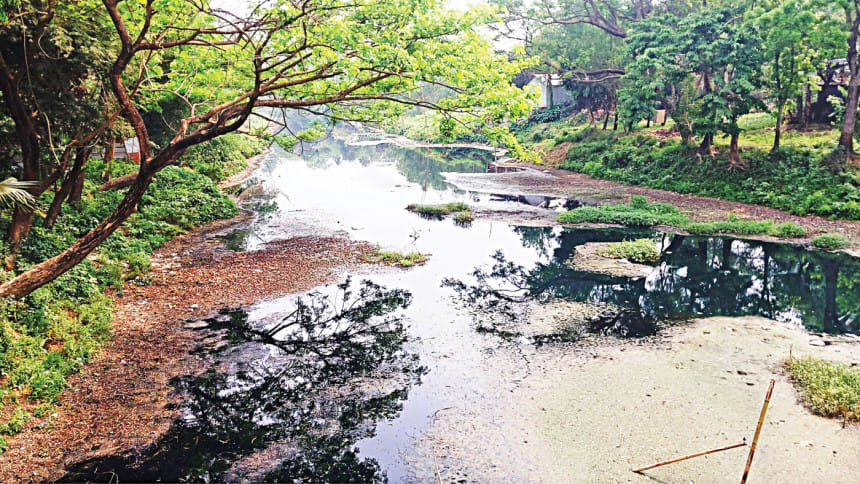Pollution claims 2.72 lakh lives in one year

Alarming levels of air pollution, unsafe water, poor sanitation, and exposure to lead caused over 2.72 lakh premature deaths in Bangladesh in 2019.
Environmental degradation also cost the country Tk 92,081 crore, which was 17.6 percent of its GDP that year, according to the Bangladesh Country Environment Analysis of World Bank.
Pollution disproportionately harms the poor, children under five, the elderly, and women, says the report released yesterday.
Addressing an event where the report was launched, Saber Hossain Chowdhury, minister of environment, said combating environmental degradation was a main agenda of the government.
"We admit that there are many environmental problems in our country. The present government has taken a 100-day programme to address the most crucial environmental issues," he said.
Some environmental problems are caused here while others are caused by the developed nations, he said while speaking as the chief guest.
"Development partners should offer grants, not loans, to resolve the environmental degradation caused by climate change."
The World Bank report says household and outdoor air pollution have the most detrimental effect on health, leading to nearly 55 percent of premature deaths, which alone cost around Tk 43,529 core or 8.32 percent of the GDP in 2019.
The presence of PM2.5 was more than twelve times higher than WHO's annual air quality standard, mentions the report.
Particulate matter, especially PM2.5, is the fine particles that float in the air. It is linked to asthma, heart and lung diseases, cancer, respiratory illnesses, and premature deaths.
Lead poisoning is causing irreversible damage to children's brain development, resulting in an estimated annual loss of nearly 20 million IQ points.
Major rivers in Bangladesh experienced a severe decline in water quality due to industrial discharge and unmanaged waste, including plastic and untreated sewage, the report states.
RIVER POLLUTION: About 60,000 cubic metres of toxic waste from more than 7,000 factories dumped into Dhaka rivers per day
The rivers surrounding Dhaka receive about 60,000 cubic metres of toxic industrial waste every day from more than 7,000 industries mainly located mostly in Tongi, Hazaribagh, Tejgaon, Tarabo, Narayanganj, Savar, Gazipur, Ghorashal, and the Dhaka Export Processing Zone.
Untreated industrial waste and chemicals used for agriculture are significantly polluting the soil which ultimately affects the rivers through groundwater flows.

Abdoulaye Seck, World Bank country director for Bhutan and Bangladesh, said, "We have seen around the world that when economic growth comes at the cost of the environment, it cannot sustain. But it is possible to grow cleaner and greener without growing slower.
"To sustain its strong growth path and improve the liveability of cities and the countryside, Bangladesh simply cannot afford to ignore the environment."
Timely and urgent interventions for air pollution control; improved water, sanitation, and hygiene; and control of lead exposure could prevent over 133,000 premature deaths per year, he said.
"We have seen around the world that when economic growth comes at the cost of the environment, it cannot sustain."
Other speakers said investments in cleaner power generation, cleaner cooking fuel, and stricter control of industrial emissions could help reduce air pollution.
Enforcing environmental regulations coupled with investments and other incentives for clean cooking, scaling up green financing, setting up efficient carbon markets, and raising awareness to reduce pollution should be emphasised, they added.
Ana Luisa Gomes Lima, World Bank senior environmental specialist and co-author of the report, said, "With timely and right set of policies and actions, Bangladesh can reverse its environment degradation."

 For all latest news, follow The Daily Star's Google News channel.
For all latest news, follow The Daily Star's Google News channel. 


Comments